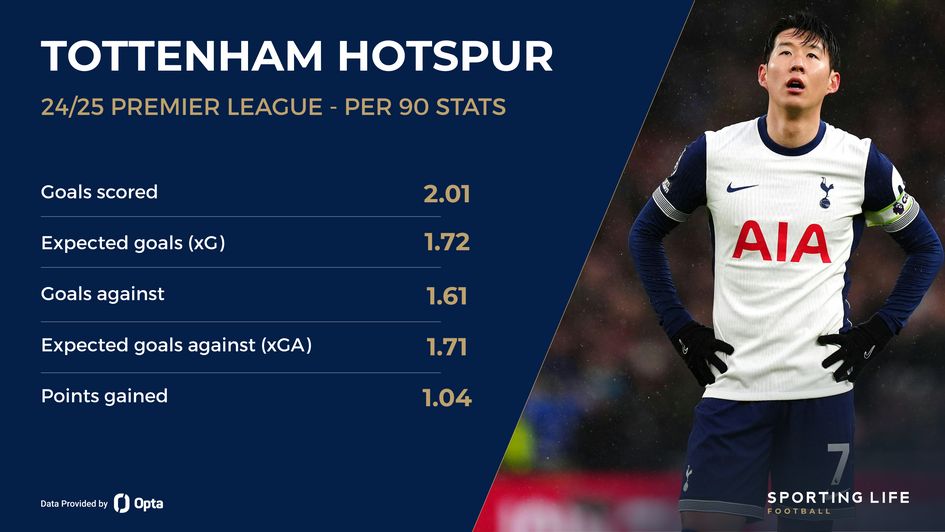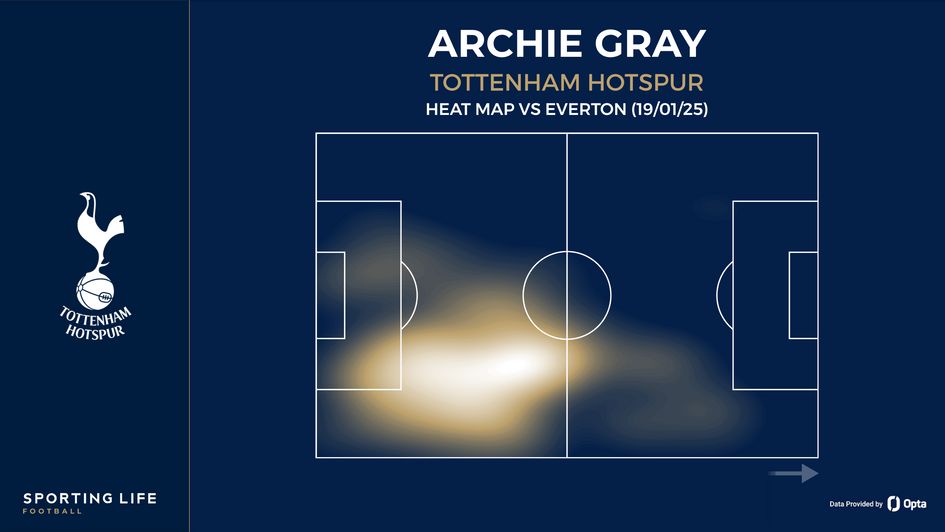All the tell-tale signs of a project swirling into a death spiral are there: shirty comments in press conferences, implausible defeats to teams near the bottom, resignation to the fates when asked about his future, and – most unlikely of all in this case – experimenting with new and desperate ways to win points.
Ange Postecoglou’s time at Tottenham will always be remembered as what happens when kamikaze attacking football is taken to its uncompromising extreme.
No manager in Premier League history has been so consistently defined by their tactical dogmatism or their unwillingness to move away from “Plan A”, and yet over the last couple of weeks there have been signs his football is indeed taking a turn.
But ironically, in this case it’s a flashing red light that tells us there is no way back from here.
Ruben Amorim is already discovering that to publicly declare tactical inflexibility is to make your own straightjacket, making any concession to new discoveries about the Premier League look like admitting personal failure, rather than proof of growth or entirely necessary adaptation.
Postecoglou has suffered similarly.
Ever since the first defeat of his reign – the 4-1 to Chelsea, when, down to nine, he deployed a ludicrous high line – Ange has lived and died by a singularity of thinking which, in a division of such wealth and quality, simply cannot work.
Every manager needs to regularly change their ideas simply to stand still.
Spurs were found out a long time ago. A record of 64 points from his last 51 Premier League games tells us as much, as does the same tactical flaws repeating again and again.
Teams from Ipswich to Leicester have been exposing them in the same ways, from man-marking the inverted full-backs to overloading the Spurs number six to hitting long balls over the ultra-high defensive line.
The Postecoglou era is a lesson – for Amorim and for the rest of us – in how not to manage a football team.

But there has been one final twist in the tale; a final flailing riposte that feels far too little too late.
Postecoglou was pinned back by Manchester City at the Etihad, only to see his team score three times on the break in a 4-0 win. He followed this up in early January with a deeper setup for the 1-0 victory over Liverpool in the Carabao Cup, when Spurs held just 40% possession at home.
Then, in the 3-2 defeat to Everton, Postecoglou deployed a hybrid 3-4-3/4-3-3 formation for the very first time, with Archie Gray moving between central defence and central midfield to change the system.
The first two Everton goals were scored as a direct result of gaps opening up around Gray, with the rest of the team understandably struggling to understand how and when to shuffle across.
Unsurprisingly, the system was immediately abandoned.

Even the Leicester game last weekend had a slight change, with Rodrigo Bentancur alone at the base of midfield, where he was promptly overwhelmed by Bilal El Khannouss as the visitors came back in the second half.
And so the Postecoglou era reaches its conclusion with the manager finally abandoning “Plan A”, letting go of the principles he repeatedly told us are non-negotiable and introducing tweaks in a desperate attempt to stop the axe from falling.
Daniel Levy, coming under significant heat himself, supposedly isn’t minded to make a change any time soon, and of course there is always the possibility that Postecoglou’s tactical changes land on something positive, rejuvenating Tottenham’s season enough to win silverware as he has promised.
But it’s far more likely we are in the final death throes; far more likely that Postecoglou’s sudden willingness to retreat from dogmatism is the sign of a manager whose iron will, whose belief in his own project, has broken.
More from Sporting Life
Safer gambling
We are committed in our support of safer gambling. Recommended bets are advised to over-18s and we strongly encourage readers to wager only what they can afford to lose.
If you are concerned about your gambling, please call the National Gambling Helpline / GamCare on 0808 8020 133.
Further support and information can be found at begambleaware.org and gamblingtherapy.org.










